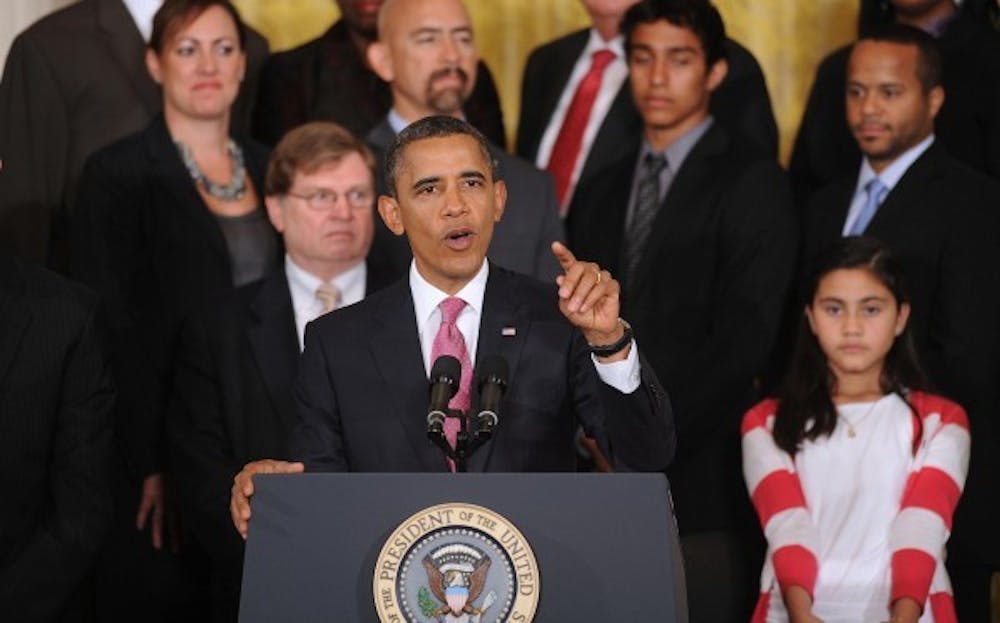The No Child Left Behind Act was a good idea, in theory. That was the sentiment shared by students around Teachers College and their dean John Jacobson.
"The idea is absolutely the right thing," Jacobson said. "But the structure and the penalty to schools just didn't work."
NCLB, which strives to increase education levels for K-12 students through standardized testing, was waived in Indiana and nine other states on Thursday.
The reason these states are now off the hook is so they can improve their educational standards on their own terms, according to The Associated Press.
"What's humbling," Jacobson said, "Is that 10 years after the bill was signed, 50 percent of Indiana schools still aren't meeting adequate yearly progress goals. So there is still plenty of work to be done."
One of the strengths of NCLB is that it helped close the achievement gaps between various cultural and ethnic groups, Jacobson said.
"We certainly want to provide the best academic environment for all elementary children," he said.
Without NCLB, Indiana will rely more heavily on Public Law 221. The Indiana Department of Education defines it as "Indiana's comprehensive accountability system for K-12 education."
The job market for teachers has been rocky the last few years, to say the least. The $150 million budget cut for K-12 education that Indiana sustained three years ago forever changed the industry: fewer positions were filled when teachers retired, after school and extra-curricular activities were cut and the whole field became more competitive.
Jacobson said education majors probably wouldn't notice a change in their curriculum based on the waiver. But he'd like to add a class on a different subject.
"One thing we definitely need to teach is how teachers are now evaluated in our various schools," he said.
If a teacher isn't performing to an adequate standard, there is a penalty placed on the teacher.
"They can't go two years being ineffective," he said. "If they are ineffective, there must be a plan to make it better."
The NCLB Act could have been revised in 2007, but because of disagreement in Congress, it was never updated.
Indiana Superintendent Tony Bennett echoed President Barack Obama's thoughts on NCLB in a statement on Thursday, saying it was a good plan but a little outdated.
"It brought accountability to a system sorely in need of a structure for driving results," he said. "However, as new advances in measuring student achievement and educator effectiveness have become available, the need for increased flexibility at the state and local level is more apparent than ever."
Junior Brigit Reder said she has mixed feelings about Indiana's wavier for NCLB.
"It had unrealistic expectations," she said. "All students need to meet expectations, but not unrealistic ones."
In high school, Reder would help out in the special needs classrooms, which helped her realize her passion for working with special needs students. She said NCLB standards were unreasonable for the students.
"Indiana already has the strongest education standards out there," she said. "With [national] standardized testing, that doesn't reach the special education population."
Becka Stroud, freshman music education major, said she's glad to see the change. But she said reversing a 10-year plan could mean a lot of changes for teachers and those earning a degree in education.
Without NCLB, teachers will be able to express their own style and be more creative in the classroom, she said.
For junior Emily Boss, her issue with NCLB was the emphasis on struggling students. The dietetics major said during high school, she got sick of teachers focusing on students who didn't really want to be in school anyway. At least it seemed to be the case at New Palestine High School where she was a student.
"It was a good idea, but as unfortunate as it is, kids don't care about being in school," she said. "With No Child Left Behind, there was less focus on kids that want to be there."



